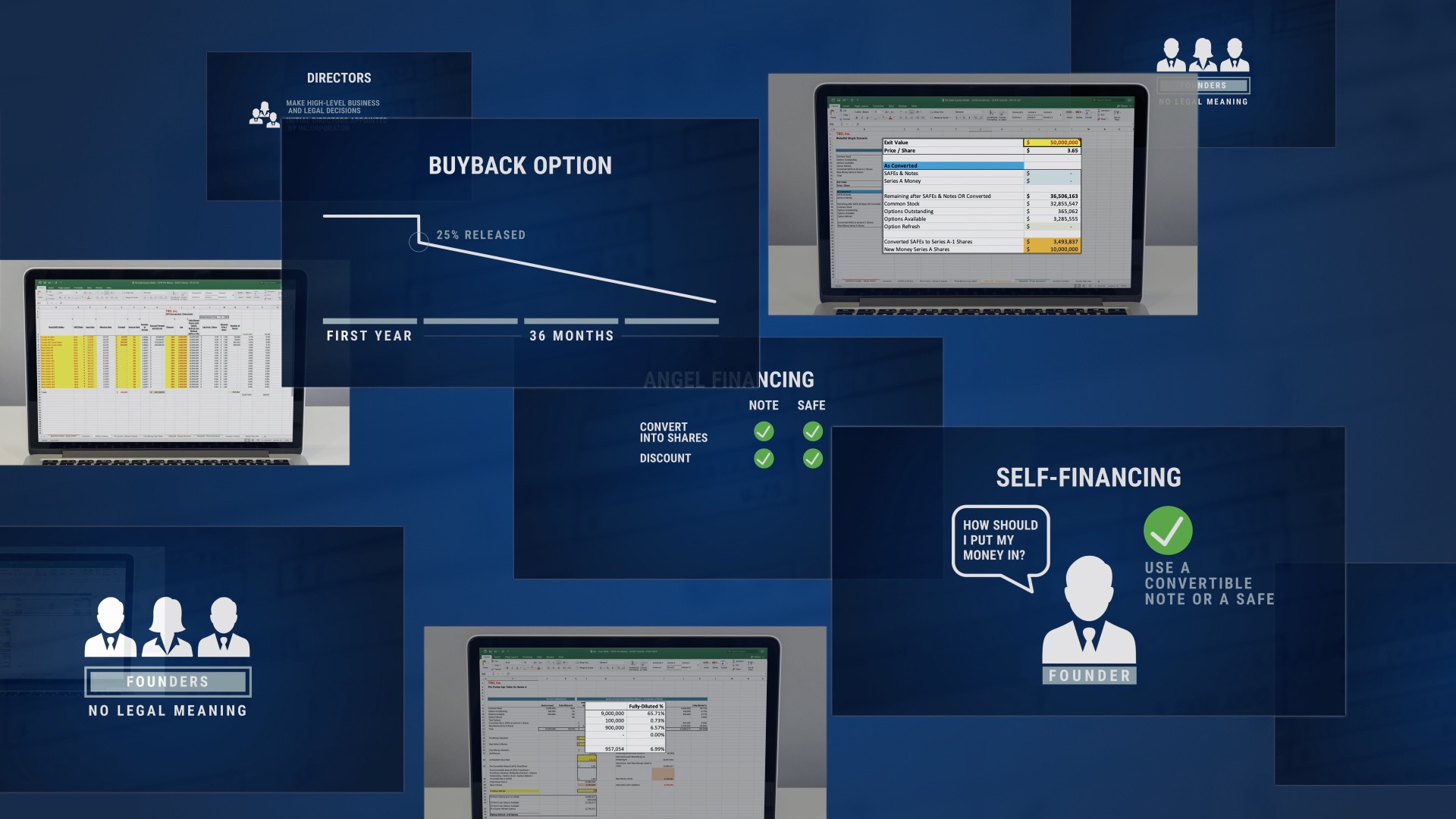With no revenue and small early investments, new startups don’t exactly have piles of cash lying around. Meanwhile, getting operational is a cash suck that can quickly empty the company’s pockets.
As you might expect, founders of new startups are highly motivated to seek savings wherever they can. But when it comes to legal fees early in a startup’s life, it’s important to optimize your attorney time while not cutting corners that’ll lead to disaster later.
A quick disclaimer (and a bit of a pitch) on paying lower startup legal fees
SUP – aka StartupProgram.com – is a company founded by a law firm, O&A, P.C. And although it may seem odd to take advice on saving legal fees from a company born of a law firm, that’s precisely why SUP exists: to provide startup formation services supported by legal expertise at a price that’s super-efficient for cash-strapped founders.
As this post lays out, SUP is unique in providing services that help you save legal fees while establishing a solid legal foundation for your company.
Avoid spending too much on legal fees by not making your attorney your teacher
The revenue model in the legal profession is about billing hours, so if you’re using attorneys’ time, you’ll need to pay for their product. And although it’s obvious that billing applies to big jobs such as filing court documents, it’s equally true of “quick questions” in emails and short phone calls. Those will result in billable hours and legal fees.
So before picking up the phone or shooting off an email to your attorney, ask yourself: Can I get this information somewhere else? This is especially true for first-time founders who may be new to all things startup and may have many questions. Searching online or chatting with colleagues at startup events is much more affordable than paying legal fees.
And even if your research doesn’t yield the precise answers you’re looking for, you’ll generally have a better understanding of a topic and know the right, targeted questions to ask your attorney later. Combining this research with an agenda based upon what you’ve learned is a great way to plan an efficient, fast meeting with your lawyer. And, once in the meeting, if you can keep to the agenda you’ll get the most value for your time.
SUP Academy, our online learning course about the economics and law around establishing a startup, was built directly as a result of seeing clients of O&A ask the same common questions of the attorneys. As part of the full SUP package, SUP Academy is complemented with attorney time to address any outstanding questions or unique issues you may have – but it’s all much more affordable than hours of attorney time spent on teaching all the information made available to you through SUP Academy.
You can learn more about SUP Academy on our page outlining all the features of SUP.
Avoid spending too much on legal fees by not relying on the Internet
Wait, didn’t we just recommend you use the Internet instead of an attorney? Not exactly.
Although the Internet is a great place to learn the basics and save you time learning how startup law and economics work (and SUP Academy is even better), the Internet is a pretty horrible place to plan and assemble your legal filings. Cutting corners with free or cheap legal information and documents may save you a few bucks now, but a mistake early on can lead to a legal mess later that can be very expensive to unsnarl.
For example, you can get pretty much any legal form you’d need on the Internet, and there are some reputable sites that make a business out of providing just that. But laws and legal documents change, and filing out-of-date forms with government agencies and others will end in rejections, lost time and fees, and a lot of headaches. It’s likely you’ll need to hire a lawyer to clean up the mess.
And even if you’re sure you have the latest forms, how do you know you’re filing all the documents you need to protect your business and yourself?
Another example: one of O&A’s clients, before hiring the firm, formed his startup by using forms found on a well-known do-it-yourself legal forms site. All the forms were up to date, filled out correctly, and successfully filed. A few years later, the company had some success and was in the final stages of negotiating a multimillion-dollar investment from a venture capitalist. The startup founders ran the numbers with their attorneys to understand how the investment would play out with stock prices, ownership of the company, etc. and discovered a problem.
Unfortunately, because one IRS form, called an 83(b) Election, was not filed at the time the company was formed, the completion of the VC investment would trigger tax bills in the tens of thousands of dollars for the founders. And, as is the nature of such venture deals, the founders would not see any income as a result of the investment. They faced a huge tax bill and no new money to pay it. The deal was scuttled, and the founders ended up paying for many attorney hours to address the issue.
One more example, this time from the commercial instead of the corporate side: typically you will need only a few different types of commercial contracts at the beginning of your business, such as an agreement for you to acquire a third party’s content to incorporate into your product. As with corporate forms, there are many commercial contract forms available on the Internet. Even if you spend the time modifying these commercial forms to explain all the details of your business and how much you’re paying for the content, you could miss some key legal provisions or not fully appreciate the details within them. One common situation is that when content is acquired, the company’s license to use that content is not clearly enough defined, which can result in the content being removed from the product when the contract expires or the third-party content owner claiming partial ownership in your product and its revenue!
SUP is built to avoid such painful situations. Although our proprietary document-generation system provides the same level of efficiency as DIY legal-form sites, SUP is designed and backed by venture attorneys. They’ll review your filings and will be available to answer questions, but will not be micromanaging the process accumulating lots of billable hours like traditional attorneys. You can read more about our document generation service and the support of venture attorneys on the SUP features page.
Avoid spending too much on legal fees by not relying on others to set the terms
Imagine you’re the coach of a high school basketball team, and through some quirk of scheduling, the league asks whether you’d like to play the championship game on your home court or in your opponent’s gym. You’d, of course, choose your home court.
It’s the same idea when you’re signing up or granting stock to contractors, advisors and others you’ll be working with on your startup. Although it may seem most efficient just to sign on the dotted line when, say, a contractor brings you his “standard contract,” you’re actually ceding home court by agreeing to terms that are possibly more beneficial to the contractor than your company. All agreements should originate from the startup, not those who will be working with it.
“If they want your business, they need to use your forms,” one O&A’s attorneys tells his clients.
But there’s another, highly practical reason to use your own agreements as provided by your legal partner: your attorney already knows what’s in them. Agreements coming from outside the company will require attorney review, top to bottom, and likely negotiations and rewriting – a lot of legal fees for what are some of the lesser documents you’ll be dealing with.
Instead, if the startup uses a set of pre-reviewed, company-favorable agreements, attorneys can make a few simple adjustments required by the specifics of the deal, and be done with minimal legal fees involved. Even if the other party wants changes to the terms, your attorney is still starting with a form they know inside and out, not a completely new document that’ll need line-by-line inspection and pile up the legal fees.
At SUP, our clients have, through their personal legal portals, access to attorney-reviewed, company-favorable forms for everything from stock purchases and vesting to non-disclosure agreements and intellectual-property assignments. And for any of the trickier deals, attorneys at O&A piece can be tapped to advise and redraft as needed.
Avoid spending too much on legal fees by using SUP
We created SUP to make the legal costs of forming and launching a startup affordable while ensuring you’re not dangerously cutting corners. Built on decades of experience helping startups, SUP is the ideal tool to cover your legal bases while avoiding spending too much on legal fees.







